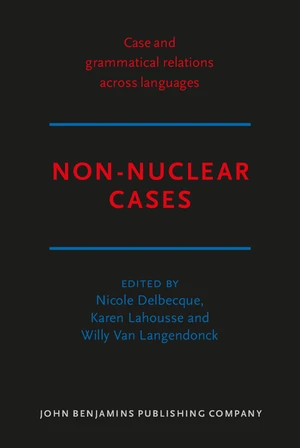This paper focuses on oblique variation in the passive. It relies on insights on causal modeling to study the construction types available to express a passive or medio-passive meaning in Spanish. Oblique variation is argued to fulfill an important function in the profiling of the relation between agent and patient, causer and causee, affectant and affectee. The choice of the preposition is shown to function as a device for agenthood management. Based on distributional evidence, the systematic survey of representative corpus examples with the four most frequent prepositions (por ‘by, through’, en ‘in’, de ‘of, from’ and con ‘with’) sheds light on issues related to the prototypicity and nuclearity of participant relations in passive and medio-passive construals.
Price history
Jul 1, 2022
€133.78

